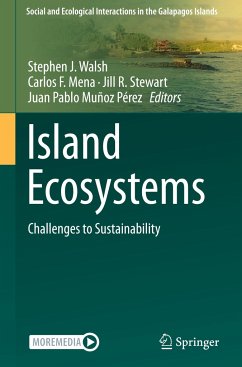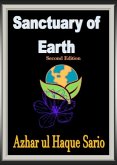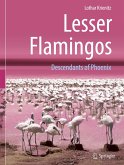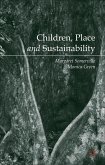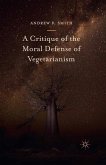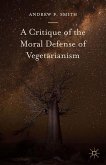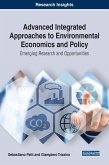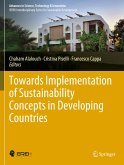Island Ecosystems
Challenges to Sustainability
Herausgegeben:Walsh, Stephen J.; Mena, Carlos F.; Stewart, Jill R.; Muñoz Pérez, Juan Pablo
Island Ecosystems
Challenges to Sustainability
Herausgegeben:Walsh, Stephen J.; Mena, Carlos F.; Stewart, Jill R.; Muñoz Pérez, Juan Pablo
- Gebundenes Buch
- Merkliste
- Auf die Merkliste
- Bewerten Bewerten
- Teilen
- Produkt teilen
- Produkterinnerung
- Produkterinnerung
Sustainable development is a process to improve the quality of life of people, while maintaining the ability of social-ecological systems to continue to provide valuable ecological services that social systems require. In the Galapagos Islands, the maintenance of amenity resources to support tourism and the quality of life of residents is explicitly linked to ecosystem goods and services, particularly, the accessibility to high-quality natural environments and the terrestrial and marine visitation sites that showcase iconic species. On June 26-30, 2022, the Galapagos Science Center celebrated…mehr
Andere Kunden interessierten sich auch für
![Sanctuary of Earth Second Edition Sanctuary of Earth Second Edition]() Azhar ul Haque SarioSanctuary of Earth Second Edition15,99 €
Azhar ul Haque SarioSanctuary of Earth Second Edition15,99 €![Lesser Flamingos Lesser Flamingos]() Lothar KrienitzLesser Flamingos42,99 €
Lothar KrienitzLesser Flamingos42,99 €![Children, Place and Sustainability Children, Place and Sustainability]() Margaret SomervilleChildren, Place and Sustainability41,99 €
Margaret SomervilleChildren, Place and Sustainability41,99 €![A Critique of the Moral Defense of Vegetarianism A Critique of the Moral Defense of Vegetarianism]() Andrew F. SmithA Critique of the Moral Defense of Vegetarianism42,99 €
Andrew F. SmithA Critique of the Moral Defense of Vegetarianism42,99 €![A Critique of the Moral Defense of Vegetarianism A Critique of the Moral Defense of Vegetarianism]() Andrew F. SmithA Critique of the Moral Defense of Vegetarianism41,99 €
Andrew F. SmithA Critique of the Moral Defense of Vegetarianism41,99 €![Advanced Integrated Approaches to Environmental Economics and Policy Advanced Integrated Approaches to Environmental Economics and Policy]() Advanced Integrated Approaches to Environmental Economics and Policy231,99 €
Advanced Integrated Approaches to Environmental Economics and Policy231,99 €![Towards Implementation of Sustainability Concepts in Developing Countries Towards Implementation of Sustainability Concepts in Developing Countries]() Towards Implementation of Sustainability Concepts in Developing Countries137,99 €
Towards Implementation of Sustainability Concepts in Developing Countries137,99 €-
-
-
Sustainable development is a process to improve the quality of life of people, while maintaining the ability of social-ecological systems to continue to provide valuable ecological services that social systems require. In the Galapagos Islands, the maintenance of amenity resources to support tourism and the quality of life of residents is explicitly linked to ecosystem goods and services, particularly, the accessibility to high-quality natural environments and the terrestrial and marine visitation sites that showcase iconic species.
On June 26-30, 2022, the Galapagos Science Center celebrated its 10-Year Anniversary. As the crowning event of the anniversary celebration, the World Summit on Island Sustainability was held on San Cristobal Island, Galapagos Archipelago of Ecuador. The intent of the World Summit was to bring together leading experts on island ecosystems and, particularly, on island sustainability from across the globe to represent a diversity of perspectives, approaches, and stakeholder groups. The World Summit was an exclusive event that featured an "expert convening" of scholars and practitioners to address the social, terrestrial, and marine sub-systems of the Galapagos Islands and other similarly challenged island ecosystems from around the globe. The World Summit attracted 150 scientists to the Galapagos Islands to discuss projects conducted, for instance, in the Galapagos Islands, Hawaii, Guam, French Polynesia, Chile, Australia, and the Caribbean Islands.
Island vulnerability, resilience, and sustainability were examined by scholars, for instance, from the University of North Carolina at Chapel Hill, Universidad San Francisco de Quito, Catholic University of Chile, University of Guam, James Cook University, University of the Sunshine Coast, North Carolina State University, North Carolina Museum of Natural Sciences, California Academy of Sciences, University of San Francisco, and the University of South Alabama aswell as affiliated scientists from Exeter University, University of Edinburgh, University of Southampton, and the Galapagos National Park. The World Summit also included scholars from Re:wild, World Wildlife Fund, EarthEcho, and the East-West Center, Hawaii.
On June 26-30, 2022, the Galapagos Science Center celebrated its 10-Year Anniversary. As the crowning event of the anniversary celebration, the World Summit on Island Sustainability was held on San Cristobal Island, Galapagos Archipelago of Ecuador. The intent of the World Summit was to bring together leading experts on island ecosystems and, particularly, on island sustainability from across the globe to represent a diversity of perspectives, approaches, and stakeholder groups. The World Summit was an exclusive event that featured an "expert convening" of scholars and practitioners to address the social, terrestrial, and marine sub-systems of the Galapagos Islands and other similarly challenged island ecosystems from around the globe. The World Summit attracted 150 scientists to the Galapagos Islands to discuss projects conducted, for instance, in the Galapagos Islands, Hawaii, Guam, French Polynesia, Chile, Australia, and the Caribbean Islands.
Island vulnerability, resilience, and sustainability were examined by scholars, for instance, from the University of North Carolina at Chapel Hill, Universidad San Francisco de Quito, Catholic University of Chile, University of Guam, James Cook University, University of the Sunshine Coast, North Carolina State University, North Carolina Museum of Natural Sciences, California Academy of Sciences, University of San Francisco, and the University of South Alabama aswell as affiliated scientists from Exeter University, University of Edinburgh, University of Southampton, and the Galapagos National Park. The World Summit also included scholars from Re:wild, World Wildlife Fund, EarthEcho, and the East-West Center, Hawaii.
Produktdetails
- Produktdetails
- Social and Ecological Interactions in the Galapagos Islands
- Verlag: Springer / Springer International Publishing / Springer, Berlin
- Artikelnr. des Verlages: 978-3-031-28088-7
- 2023
- Seitenzahl: 540
- Erscheinungstermin: 11. Mai 2023
- Englisch
- Abmessung: 241mm x 160mm x 35mm
- Gewicht: 969g
- ISBN-13: 9783031280887
- ISBN-10: 3031280881
- Artikelnr.: 67399570
- Herstellerkennzeichnung
- Books on Demand GmbH
- In de Tarpen 42
- 22848 Norderstedt
- info@bod.de
- 040 53433511
- Social and Ecological Interactions in the Galapagos Islands
- Verlag: Springer / Springer International Publishing / Springer, Berlin
- Artikelnr. des Verlages: 978-3-031-28088-7
- 2023
- Seitenzahl: 540
- Erscheinungstermin: 11. Mai 2023
- Englisch
- Abmessung: 241mm x 160mm x 35mm
- Gewicht: 969g
- ISBN-13: 9783031280887
- ISBN-10: 3031280881
- Artikelnr.: 67399570
- Herstellerkennzeichnung
- Books on Demand GmbH
- In de Tarpen 42
- 22848 Norderstedt
- info@bod.de
- 040 53433511
Dr Stephen J. Walsh is Emeritus Distinguished Professor in the Department of Geography, the Founding Emeritus Director of the Center for Galapagos Studies at the University of North Carolina at Chapel Hill (UNC), and Co-Founding Director of the UNC-USFQ Galapagos Science Center (GSC), Galapagos Archipelago of Ecuador. He co-founded the Galapagos Initiative, forming a strategic partnership with the Universidad San Francisco de Quito (USFQ), Ecuador. The initiative includes the 2011 construction of the 20,000-square-foot Galapagos Science Center on San Cristobal Island, Ecuador, a facility that hosts an extensive and intensive program of integrated and interdisciplinary science. The Galapagos Initiative emphasises research, education, and community outreach and engagement, achieved through studies conducted in the GSC labs - genetics and microbiology, marine ecology, terrestrial ecology, and spatial analysis and modelling. Through linkages forged among UNC, USFQ, GSC, and the Galapagos National Park, a DNA-pipeline was created for the genetic sequencing of collected biological samples to support a host of molecular studies of iconic, native, and introduced species in the Galapagos Islands. In addition to informing conservation efforts for the Galapagos Islands, Dr Walsh's research is providing a global template for the study of other conflicted and challenged island ecosystems. His main research interests include human-environment interactions, coupled human-natural systems, and cutting-edge geographic methods, including, remote sensing, geographic information systems, and spatial analysis. In 2012, Dr Walsh and Springer Nature launched the book series "Social and Ecological Interactions in the Galapagos Islands", for which he is still Series Editor together with Dr. Carlos F. Mena. Dr. Carlos F. Mena is the Founding Director of the USFQ Institute of Geography and founding Co-Director of the Galapagos Science Center. Carlos F.Mena is Professor of Geography in the School of Biological and Environmental Sciences at USFQ and Adjunct Professor at the University of North Carolina at Chapel Hill. Carlos F. Mena obtained his Ph.D. in Geography from the University of North Carolina at Chapel Hill (USA) and has been doing research in the Amazon and Galapagos Islands for more than 20 years. Since 2010, Carlos F. Mena co- created, developed, and lead the Galapagos Science Center (GSC). The GSC is an interdisciplinary research center in San Cristobal Island in the Galapagos Archipelago for the advancement of science, conservation and sustainable development of the Galapagos and Ecuador. Mena also co-created and manages the University Consortium for Galapagos Research, a network of international universities, which develop research projects in the Galapagos Islands through the Galapagos Science Center. The USFQ Institute of Geography (USFQ-IG), created by Carlos F. Mena in 2016, is an interdisciplinary space atthe Universidad San Francisco de Quito to foster geographic research and education in Ecuador. Jill Stewart, Co-Guest Editor, is the Philip C. Singer Distinguished Professor, Department of Environmental Sciences and Engineering, University of North Carolina at Chapel Hill, USA and former Deputy Director of the UNC Center for Galapagos Studies. She develops novel techniques to detect and track pathogens in water. She is particularly interested in linkages between ecosystems and human health and well-being. Juan Pablo Muñoz-Pérez, Co-Guest Editor, has more than 20-years of experience in diving and surfing in the Galápagos and 10-years conducting research. Juan Pablo's research focuses on animal movement and ecology, especially sea turtles and other marine animals such as whales and dolphins. Since 2014 he has been a pioneer in investigating plastic pollution in Galápagos with the primary objective of using science to find solutions. Currently, he is completing his PhD at the University of the Sunshine Coast, Australia.
Foreword (Ashlan Cousteau).- Preface (Don Hobart).- Part I: UNC & USFQ Galapagos Science Center, 10th Year Anniversary.- Chapter 1. Connected Places and Social-Ecological Forces that Impact Small Island Sustainability: An Essay (Stephen J. Walsh and Carlos F. Mena).- Part II: Communique of the World Summit on Island Sustainability.- Chapter 2. Goals and Objectives of the World Summit on Island Sustainability (Stephen J. Walsh and Carlos F. Mena).- Part III: Island Ecosystems - Challenges to Sustainability.- Chapter 3. Globalization and the Challenging Political Economy of Governing (and Researching) Islands in Contemporary Times (Juan Pablo Luna).- Chapter 4. Changing Land Use in Island Countries: A Meta Perspective on Effects of Demographic Processes and Tourism (Richard E. Bilsborrow).- Chapter 5. Pacific Island Perspectives on Invasive Species and Climate Change (Laura Brewington, Bradley Eichelberger, Nicole Read, Elliott Parsons, Heather Kerkering, Christy Martin, Wendy Miles, Jacques Idechong, Jeff Burgett).- Chapter 6. On-the-Ground Solutions to Help People and Wildlife in a Changing Climate (Nikhil Advani).- Part IV: Island Ecosystems - Social Sub-Systems.- Chapter 7. Climate and Health Challenges in Small Island States: Identifying Vulnerability in Water and Food Resources in the Galapagos Islands, Ecuador (Amanda L. Thompson, Jill Stewart, Margaret Bentley, Jaime Ocampo, Enrique Teran and Valeria Ochoa).- Chapter 8. Improvements in the Galapagos Health System: Telemedicine, Research, and Medical Assistants (Jaime Eduardo Ocampo Trujillo and María Emilia Menoscal Coello).- Chapter 9. Social Issues in the Galapagos Islands: A Participatory and Exploratory Study (Gina Chowa, Cindy Fraga Rizzo, Amanda Thompson, Margaret Bentley and Mimi Chapman).- Chapter 10. Towards Increased Island Food System Resilience: Lessons Learned from the COVID-19 Pandemic (Khristopher M. Nicholas, Margaret E. Bentley, Clare Barrington and Amanda L. Thompson).- Chapter 11. Understanding the Impacts of a Natural Disaster: Evidence from the 2004 Indian Ocean Tsunami (Elizabeth Frankenberg, Cecep Sumantri and Duncan Thomas).- Part V: Island Ecosystems - Terrestrial Sub-Systems.- Chapter 12. Unraveling the Interactions between Endemic and Invasive Plant Species in the Galapagos Islands (María de Lourdes Torres, Diego Urquía, Leonie Moyle, Matt Gibson, Todd Vision and Bryan Reatini).- Chapter 13. Galapagos Land Snails and Environmental Sustainability (Stella de la Torre & Isabel Villarruel-Oviedo).- Chapter 14. Galapagos Petrels Conservation Helps Transition Towards a Sustainable Future (Leo Zurita Arthos, Carolina Proaño, Jonathan Guillén, Sebastián Cruz and David Wiedenfeld).- Chapter 15. Impact of Weathering and Mineralogy on the Chemistry of Soils from San Cristobal Island, Galapagos (Xiao-Ming Liu, Heather D. Hanna and Julia G. Barzyk).- Chapter 16. Mapping Narratives of Agricultural Land Use Practices in the Galapagos (Francisco Laso & Javier Arce-Nazario).- Chapter 17. Land Use and Land Cover Change: Economic and Natural Drivers (Madeline Giefer).- Part VI: Island Ecosystems - Marine Sub-Systems.- Chapter 18. Common Oversights in the Design and Monitoring of Ecosystem-Based Management Plans and the Siting of Marine Protected Areas (Sergio A. Navarrete, Christopher M. Aiken, M. Isidora Ávila-Thieme, Daniel Valencia, Alexandre Génin and Stefan Gelcich).- Chapter 19. Levels of Upwelling are Important to Consider for Conservation (Michael J Kingsford, Margarita Brandt and Juan-Manuel Alava).- Chapter 20. Ten Years of Wildlife Health and Conservation in the Galapagos, 2013-2022 (Gregory A. Lewbart, Juan Pablo Muñoz-Pérez, Diego Páez-Rosas, Carlos Valle, Daniela Alarcón Ruales Maximilian Hirschfeld, Diane Deresienski and Kenneth J. Lohmann).- Chapter 21. Challenges in the Application of the Ecosystem Approach to Fisheries Management in the Galapagos Islands (Marjorie Riofrio-Lazo, Manuel J. Zetina-Rejón, Gunter Reck, Diego Páez-Rosas and Francisco Arreguín-Sánchez).- Chapter 22. Cetaceans of the Galapagos Archipelago: Species in Constant Change and the Importance of a Standardized and Long-Term Citizen Science (Daniela Alarcón-Ruales, Judith Denkinger, Leo Zurita, Salome Herrera C, Santiago Díaz-Pazmiño, Eduardo Espinoza; Juan Pablo Muñoz-Pérez; Bonnie Holmes; Kathy A. Townsend).- Chapter 23. Establishing Comparable Health Baselines for Marine Turtle Populations (Caitlin E. Smith, Ben L. Gilby, Juan Pablo Muñoz-Pérez, Jason P. van de Merwe, Kathy A. Townsend).- Part VII: Island Ecosystems - Interdisciplinary Science for Sustainability.- Chapter 24. An Agent-Based Model of Household Livelihood Strategies in the Galapagos Islands: Impact of Jobs in Fishing, Fishing Restrictions, and Fishing Deregulation on Household Employment Decisions (Stephen J. Walsh & Carlos F. Mena).- Chapter 25. The Role for Scientific Collections and Public Museums in Island Conservation (John Dumbacher and Jaime Chaves).- Chapter 26. The Museum Effect: Platforms for Advocacy and Sustainability in Insular Environments (Eric Dorfman, Javan Sutton, and Bryan L. Stuart).- Chapter 27. Microgrids: An Opportunity for Sustainable Developments on Islands (Noah Kittner).- Part VIII: Island Sustainability: Paths Forward in the Galapagos & Beyond.- Chapter 28. Island Digital Ecosystem Avatars (IDEA) Consortium: Infrastructure for Democratic Ecological Action (Neil Davies).- Chapter 29. Galapagos Genetic Barcode: A Model for Island Economic Resilience During COVID-19 Pandemic (Jaime A. Chaves, Camille Bonneaud, Andy Russell, Carlos F. Mena, Carolina Proano, Diego A. Ortiz, Marilyn Cruz, Alberto Velez, Jen Jones, Tom Chaigneau and Diana A. Pazmino).- Chapter 30. Island Innovation: Transitioning Towards a Circular Economy for Plastics in Galapagos, Ecuador (Jen S. Jones, Jess Howard, Tamara S. Galloway, Lucía Norris and Sol Espinosa).- Chapter 31. From Building Resilience to Adaptive Transformation: Exploring the Rationale for Inclusive Governance in Galapagos (Maria Soledad Garcia Ferrari, Amelia A. Bain and Stephanie Crane De Narváez).- Chapter 32. The Extinction Market: Reflections on the Possible Future of the Illegal Galapagos Wildlife Trade (Evelyn Vega Barrera, Diego Quiroga Ferri and Carlos F. Mena).- Index.
Foreword (Ashlan Cousteau).- Preface (Don Hobart).- Part I: UNC & USFQ Galapagos Science Center, 10th Year Anniversary.- Chapter 1. Connected Places and Social-Ecological Forces that Impact Small Island Sustainability: An Essay (Stephen J. Walsh and Carlos F. Mena).- Part II: Communique of the World Summit on Island Sustainability.- Chapter 2. Goals and Objectives of the World Summit on Island Sustainability (Stephen J. Walsh and Carlos F. Mena).- Part III: Island Ecosystems - Challenges to Sustainability.- Chapter 3. Globalization and the Challenging Political Economy of Governing (and Researching) Islands in Contemporary Times (Juan Pablo Luna).- Chapter 4. Changing Land Use in Island Countries: A Meta Perspective on Effects of Demographic Processes and Tourism (Richard E. Bilsborrow).- Chapter 5. Pacific Island Perspectives on Invasive Species and Climate Change (Laura Brewington, Bradley Eichelberger, Nicole Read, Elliott Parsons, Heather Kerkering, Christy Martin, Wendy Miles, Jacques Idechong, Jeff Burgett).- Chapter 6. On-the-Ground Solutions to Help People and Wildlife in a Changing Climate (Nikhil Advani).- Part IV: Island Ecosystems - Social Sub-Systems.- Chapter 7. Climate and Health Challenges in Small Island States: Identifying Vulnerability in Water and Food Resources in the Galapagos Islands, Ecuador (Amanda L. Thompson, Jill Stewart, Margaret Bentley, Jaime Ocampo, Enrique Teran and Valeria Ochoa).- Chapter 8. Improvements in the Galapagos Health System: Telemedicine, Research, and Medical Assistants (Jaime Eduardo Ocampo Trujillo and María Emilia Menoscal Coello).- Chapter 9. Social Issues in the Galapagos Islands: A Participatory and Exploratory Study (Gina Chowa, Cindy Fraga Rizzo, Amanda Thompson, Margaret Bentley and Mimi Chapman).- Chapter 10. Towards Increased Island Food System Resilience: Lessons Learned from the COVID-19 Pandemic (Khristopher M. Nicholas, Margaret E. Bentley, Clare Barrington and Amanda L. Thompson).- Chapter 11. Understanding the Impacts of a Natural Disaster: Evidence from the 2004 Indian Ocean Tsunami (Elizabeth Frankenberg, Cecep Sumantri and Duncan Thomas).- Part V: Island Ecosystems - Terrestrial Sub-Systems.- Chapter 12. Unraveling the Interactions between Endemic and Invasive Plant Species in the Galapagos Islands (María de Lourdes Torres, Diego Urquía, Leonie Moyle, Matt Gibson, Todd Vision and Bryan Reatini).- Chapter 13. Galapagos Land Snails and Environmental Sustainability (Stella de la Torre & Isabel Villarruel-Oviedo).- Chapter 14. Galapagos Petrels Conservation Helps Transition Towards a Sustainable Future (Leo Zurita Arthos, Carolina Proaño, Jonathan Guillén, Sebastián Cruz and David Wiedenfeld).- Chapter 15. Impact of Weathering and Mineralogy on the Chemistry of Soils from San Cristobal Island, Galapagos (Xiao-Ming Liu, Heather D. Hanna and Julia G. Barzyk).- Chapter 16. Mapping Narratives of Agricultural Land Use Practices in the Galapagos (Francisco Laso & Javier Arce-Nazario).- Chapter 17. Land Use and Land Cover Change: Economic and Natural Drivers (Madeline Giefer).- Part VI: Island Ecosystems - Marine Sub-Systems.- Chapter 18. Common Oversights in the Design and Monitoring of Ecosystem-Based Management Plans and the Siting of Marine Protected Areas (Sergio A. Navarrete, Christopher M. Aiken, M. Isidora Ávila-Thieme, Daniel Valencia, Alexandre Génin and Stefan Gelcich).- Chapter 19. Levels of Upwelling are Important to Consider for Conservation (Michael J Kingsford, Margarita Brandt and Juan-Manuel Alava).- Chapter 20. Ten Years of Wildlife Health and Conservation in the Galapagos, 2013-2022 (Gregory A. Lewbart, Juan Pablo Muñoz-Pérez, Diego Páez-Rosas, Carlos Valle, Daniela Alarcón Ruales Maximilian Hirschfeld, Diane Deresienski and Kenneth J. Lohmann).- Chapter 21. Challenges in the Application of the Ecosystem Approach to Fisheries Management in the Galapagos Islands (Marjorie Riofrio-Lazo, Manuel J. Zetina-Rejón, Gunter Reck, Diego Páez-Rosas and Francisco Arreguín-Sánchez).- Chapter 22. Cetaceans of the Galapagos Archipelago: Species in Constant Change and the Importance of a Standardized and Long-Term Citizen Science (Daniela Alarcón-Ruales, Judith Denkinger, Leo Zurita, Salome Herrera C, Santiago Díaz-Pazmiño, Eduardo Espinoza; Juan Pablo Muñoz-Pérez; Bonnie Holmes; Kathy A. Townsend).- Chapter 23. Establishing Comparable Health Baselines for Marine Turtle Populations (Caitlin E. Smith, Ben L. Gilby, Juan Pablo Muñoz-Pérez, Jason P. van de Merwe, Kathy A. Townsend).- Part VII: Island Ecosystems - Interdisciplinary Science for Sustainability.- Chapter 24. An Agent-Based Model of Household Livelihood Strategies in the Galapagos Islands: Impact of Jobs in Fishing, Fishing Restrictions, and Fishing Deregulation on Household Employment Decisions (Stephen J. Walsh & Carlos F. Mena).- Chapter 25. The Role for Scientific Collections and Public Museums in Island Conservation (John Dumbacher and Jaime Chaves).- Chapter 26. The Museum Effect: Platforms for Advocacy and Sustainability in Insular Environments (Eric Dorfman, Javan Sutton, and Bryan L. Stuart).- Chapter 27. Microgrids: An Opportunity for Sustainable Developments on Islands (Noah Kittner).- Part VIII: Island Sustainability: Paths Forward in the Galapagos & Beyond.- Chapter 28. Island Digital Ecosystem Avatars (IDEA) Consortium: Infrastructure for Democratic Ecological Action (Neil Davies).- Chapter 29. Galapagos Genetic Barcode: A Model for Island Economic Resilience During COVID-19 Pandemic (Jaime A. Chaves, Camille Bonneaud, Andy Russell, Carlos F. Mena, Carolina Proano, Diego A. Ortiz, Marilyn Cruz, Alberto Velez, Jen Jones, Tom Chaigneau and Diana A. Pazmino).- Chapter 30. Island Innovation: Transitioning Towards a Circular Economy for Plastics in Galapagos, Ecuador (Jen S. Jones, Jess Howard, Tamara S. Galloway, Lucía Norris and Sol Espinosa).- Chapter 31. From Building Resilience to Adaptive Transformation: Exploring the Rationale for Inclusive Governance in Galapagos (Maria Soledad Garcia Ferrari, Amelia A. Bain and Stephanie Crane De Narváez).- Chapter 32. The Extinction Market: Reflections on the Possible Future of the Illegal Galapagos Wildlife Trade (Evelyn Vega Barrera, Diego Quiroga Ferri and Carlos F. Mena).- Index.

